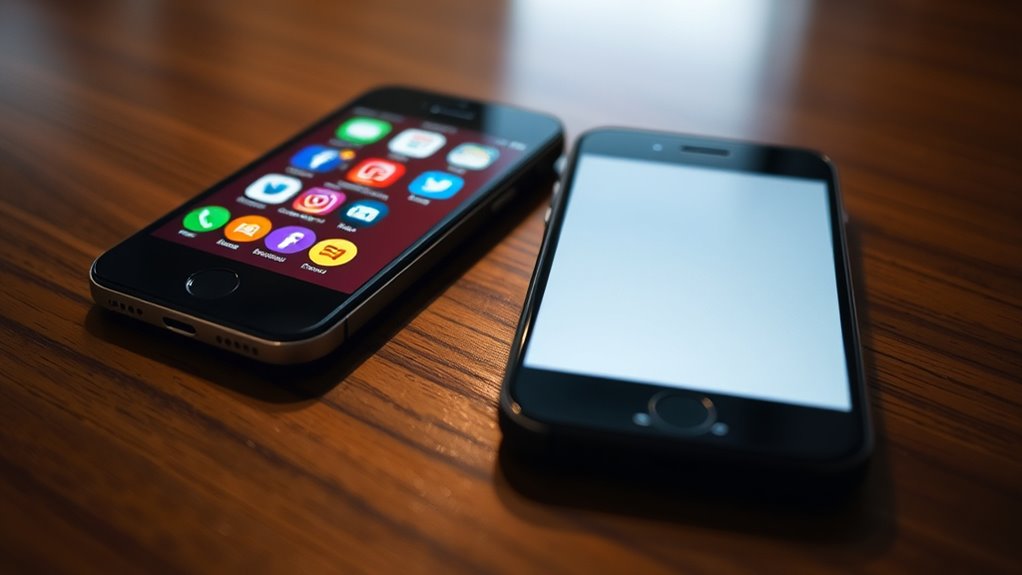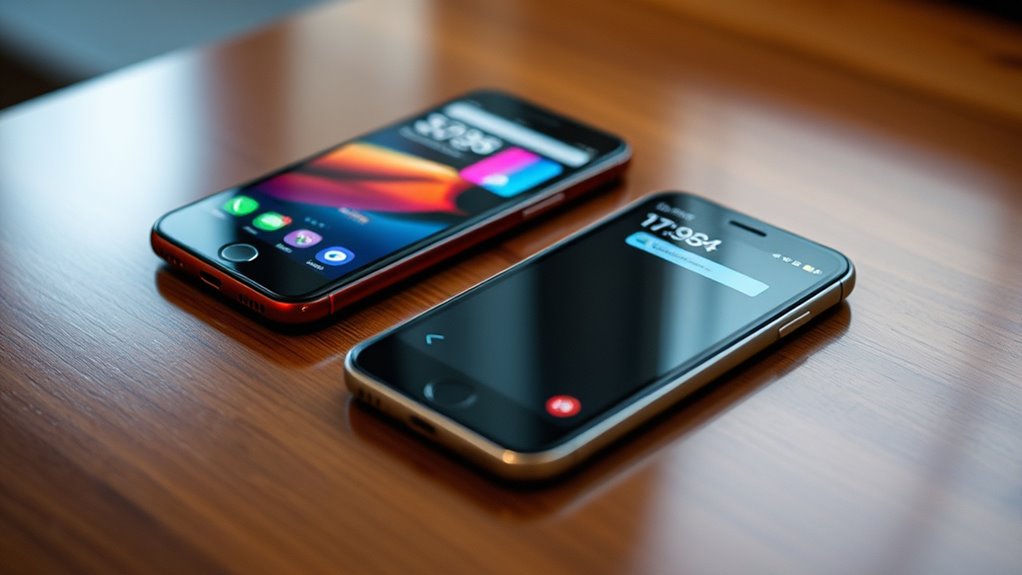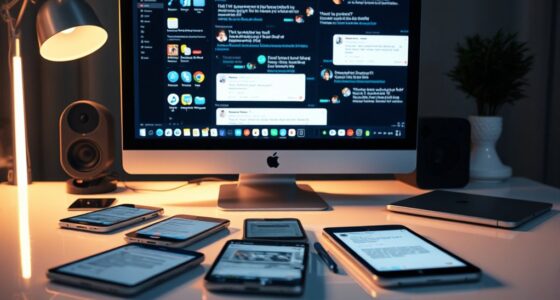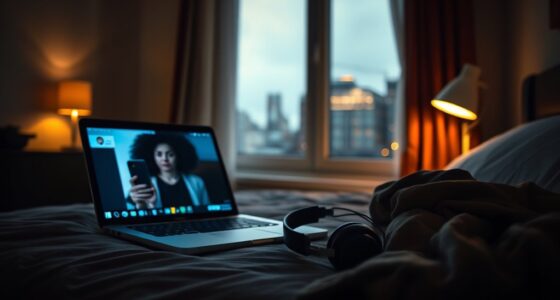Having a second phone can be normal if you’re managing work, privacy, or safety concerns. People often keep separate devices to protect sensitive information or maintain boundaries. However, if someone becomes secretive, avoids sharing access, or hides the device, it might signal something more serious. It’s important to contemplate the context and overall behavior. Want to uncover when a second phone is just practical versus suspicious? Keep exploring for insights.
Key Takeaways
- Multiple phones can be justified for privacy, security, or professional reasons, not solely suspicion.
- Secretive behavior and hidden device access often indicate red flags like infidelity or deception.
- Transparent communication about the purpose of second devices helps differentiate normal privacy from suspicious secrecy.
- Context matters: for safety or legal reasons, having multiple phones is legitimate and not necessarily problematic.
- Overall behavior and honesty are key in assessing whether second phones signal red flags or practical needs.

Have you ever wondered what it’s like to live two separate lives through just one person? Maybe you’ve noticed someone carrying around a second phone or hiding their device when they’re around others. It’s natural to feel suspicious or curious because, in many cases, having a second phone can signal something more serious. But before jumping to conclusions, it’s important to understand why people choose to keep multiple phones and when it might actually be innocent.
In today’s digital age, privacy is a big deal. Some folks carry a second device simply to keep personal matters separate from work or social life. They might not want their messages or calls mixed, especially if they’re dealing with sensitive information or simply value boundaries. For example, a person might have a work phone that stays at the office or in their bag, while their personal device is used for family and friends. This isn’t necessarily shady; it could be a way to manage stress or maintain a healthy separation between different parts of life.
However, second phones can also raise red flags when they’re used to hide something. If someone suddenly becomes secretive, refuses to share their device, or keeps it close at all times, it’s natural to wonder what they’re hiding. Are they communicating with someone they don’t want you to know about? Are they avoiding questions or hiding evidence of something dishonest? In these situations, a second phone might be a sign of deception, infidelity, or other issues that warrant a closer look. It’s not just about the phone itself but what it represents—secrecy, avoidance, or a lack of transparency.
Secretive behavior and refusal to share a second phone can signal deception or deeper issues.
That said, context is everything. Some people might have a second phone because of legal or safety reasons, such as journalists, activists, or individuals in protective situations. They might need to keep their communications confidential for their safety or work. In such cases, the second device isn’t a red flag but a necessary tool for their security. Additionally, the presence of multiple devices is often linked to the WWE Raw’s Financial Impact, where the entertainment industry’s revenue streams reflect the importance of strategic resource management.
Ultimately, whether a second phone is cause for concern depends on the circumstances and your relationship with that person. If they’re generally open and honest, a second device might just be a practical choice. But if it’s accompanied by secrecy, evasiveness, or suspicious behavior, then it’s worth having an honest conversation. Recognize the difference between normal privacy measures and signs of deeper issues. Remember, understanding the why behind the second phone can help you navigate your feelings and decide what steps to take next.
Frequently Asked Questions
How Common Is It to Secretly Use a Second Phone?
It’s more common than you might think to secretly use a second phone, especially if you’re trying to keep certain aspects of your life private. Many people do it for work, dating, or personal reasons. You probably know someone who has a hidden device or have considered it yourself. While it raises red flags in some situations, it’s not always suspicious—sometimes, it’s just a way to manage different parts of your life discreetly.
Can Having Two Phones Indicate Infidelity or Deception?
Having two phones can sometimes suggest infidelity or deception, but it’s not always the case. You might use a second device for work, privacy, or personal reasons. If someone’s secretive about their phones or hides theirs, it could raise red flags. However, don’t jump to conclusions without understanding their reasons. Open communication helps clarify whether the second phone is harmless or signals something more concerning.
What Are Legal Considerations for Maintaining Two Phones?
Managing two phones is like juggling flaming torches—you need to stay within legal bounds. Legally, you must respect privacy laws, avoid unauthorized access, and ensure you’re not using second devices for illegal activities. Keep clear records if needed, and be transparent if required by your circumstances. Always check local laws, and consider consulting a legal expert to avoid unintentional violations that could cause trouble.
How Can Someone Discreetly Hide a Second Device?
To discreetly hide a second device, you can store it in uncommon places like a hidden compartment or a small container in your home. Use cases or sleeves that blend in with everyday objects, such as a book or a wallet. Turn off notifications and keep the phone on silent. Regularly clean and reset the device to prevent digital traces. Always prioritize safety and legal considerations when hiding devices.
Are There Positive Reasons for Owning Two Separate Phones?
You might own two phones for privacy, work-life balance, or security reasons. It helps keep personal and professional contacts separate, preventing accidental sharing or leaks. If you travel frequently, a second device can avoid roaming charges. Additionally, some use a second phone for sensitive activities, ensuring their main device remains secure. In these cases, owning two phones is practical and beneficial, not suspicious.
Conclusion
Having a second phone isn’t always suspicious; it can simply be about separating work from personal life. For instance, Sarah kept a second device for her side business, avoiding mixed messages. But if you notice secretive behavior or unexplained activity, it’s worth questioning. Ultimately, it’s about understanding your partner’s reasons and trusting your instincts. Not every second phone signals trouble—sometimes, it’s just a smart way to manage different worlds.









